Is Mineral Water Good For You? The Benefits of Drinking Your Minerals

- Mineral water is bottled from underground reservoirs which provide naturally occurring minerals.
- Drinking mineral water is safe, but avoid bottled water that isn’t BPA-free or contains artificial ingredients.
- Research has linked mineral water with benefits including heart health, bone health and even regular bowel movements.
- Supplements can also help you get a daily dose of minerals, like magnesium in Bulletproof Magnesium and zinc with copper in (you guessed it) Bulletproof Zinc With Copper.
Is mineral water good for you? Good news: It might be one of the most underrated supplements out there.
There are two different forms of minerals: macrominerals (which we need more of) and trace minerals (which we only need in small amounts). Your body requires minerals to keep bone, muscle, heart and brain health in check.
Before you make the swap from your tap water, we’re giving you the lowdown on the health benefits of mineral water, what to look for and whether that bubbly carbonated water is really worth your time.
What is mineral water?
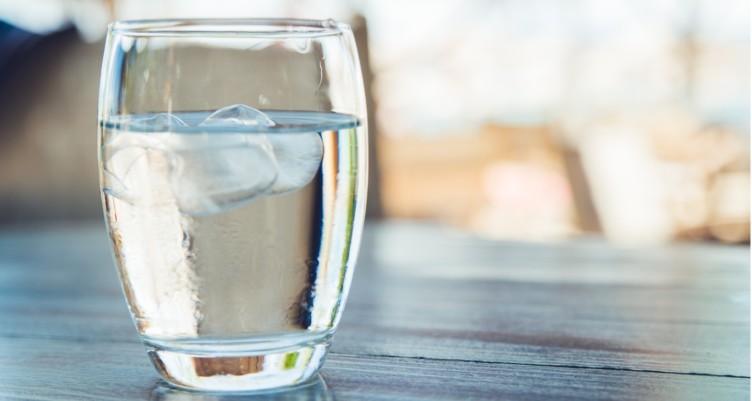
Mineral water isn’t your standard regular water. It’s still a source of hydration, but it’s bottled from a natural underground reservoir, or mineral spring, which is how it gets its mineral density.
In order for it to be considered mineral water, the Food and Drug Administration (FDA) requires the mineral content of the water be at least 250 parts per million of total dissolved solids.[1] The common minerals you’ll likely receive when drinking mineral water include calcium, magnesium, potassium, sodium, iron and zinc.[2]
Unlike tap water, mineral water is bottled at the source and doesn’t undergo chemical disinfectant treatments. The only processing mineral water may go through is the addition or removal of carbon dioxide gas to limit the bacterial growth.
Is mineral water good for you?
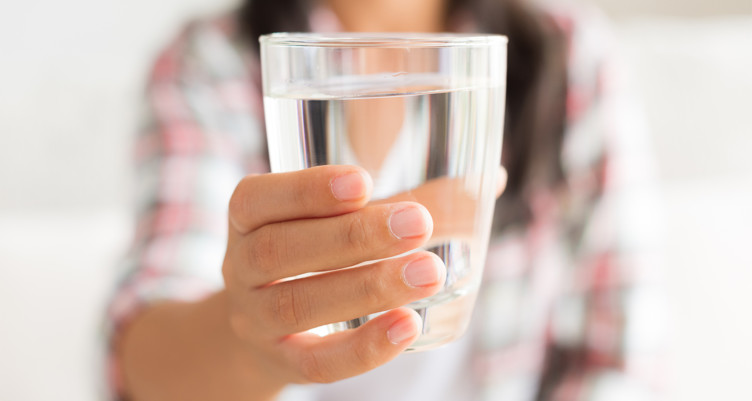
Mineral water is hydrating and provides minerals in the same sip. However, you’ll want to consider the total package—namely, whether or not your mineral water is bottled in BPA plastic.
BPA stands for bisphenol A, a chemical that is used to make certain plastics including plastic bottles. BPA exposure has been linked with endocrine disorders in both men and women, type 2 diabetes, high blood pressure and potential problems with heart health.[3] [4] [5]
You also want to enjoy mineral water made without funky ingredients, like artificial sweeteners. Instead, give your mineral water some flavor at home with a squeeze of lime, some muddled fruit or a handful of refreshing herbs, like mint.
Mineral water benefits
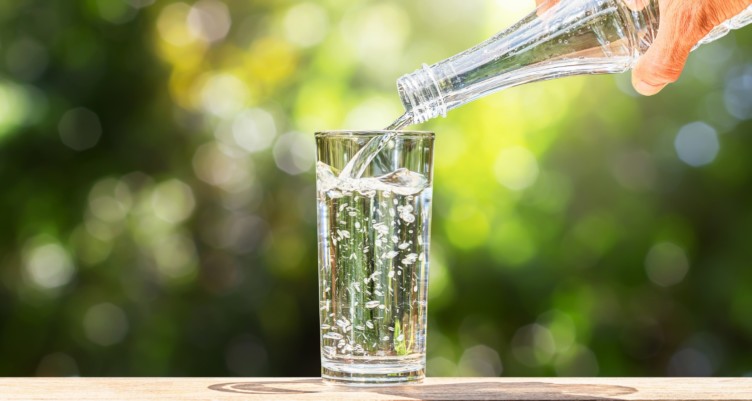
While you search for BPA-free plastic bottles, here are several potential benefits of mineral water.
- Supports heart health: A study found that individuals with borderline hypertension, or high blood pressure, and low magnesium saw an improvement in blood pressure after drinking 1 liter of mineral water per day.[6]
- Supports bone health: A diet high in calcium can help form strong bones and prevent bone loss. According to a 2017 study, mineral water that contains high amounts of calcium may improve the body’s calcium supply comparable to milk and calcium supplements.[7]
- Prevents constipation: If you’re not having your regular #2’s, reach for mineral water. Research has found that mineral water containing both magnesium and sodium sulfate helped digestive health and led to more bowel movements. [8]
- Replaces electrolytes: Dehydration can lead to loss of electrolytes, which are minerals that have an electric charge. Electrolytes are important to keep your body’s water balanced, move nutrients into the cells and waste out of the cells. Drinking natural mineral water can help replace those minerals and keep things flowing. Consuming adequate amounts of sodium, like Himalayan pink salt, can help trigger your “thirst cue” to make sure you’re staying well hydrated.
Is carbonated mineral water good for you?
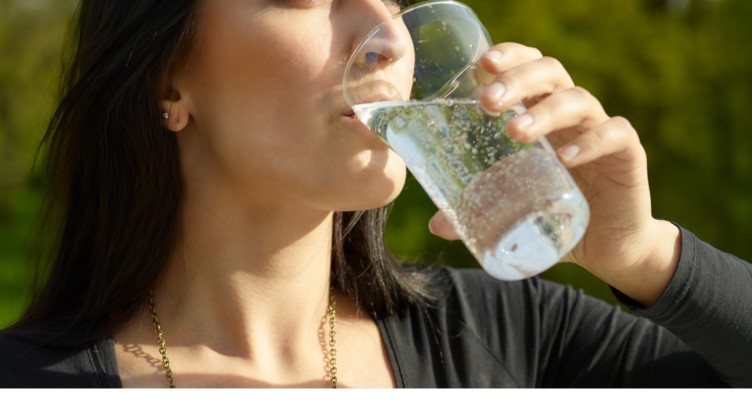 Drinking sparkling water may impact those pearly whites by damaging tooth enamel. The reason is that carbonation in water makes it more acidic than regular water, which softens tooth enamel and makes you prone to cavities and sensitive teeth. This is true for other carbonated drinks like club soda and seltzer water, too.
Drinking sparkling water may impact those pearly whites by damaging tooth enamel. The reason is that carbonation in water makes it more acidic than regular water, which softens tooth enamel and makes you prone to cavities and sensitive teeth. This is true for other carbonated drinks like club soda and seltzer water, too.
Fortunately, carbonated water doesn’t impact your teeth nearly as much as other sugar-filled carbonated beverages, such as soft drinks or tonic water. You’ll still get mineral water benefits (namely, added trace minerals) from carbonated varieties.
Just keep an eye on the ingredients: Some carbonated mineral waters contain added sugar.
The bottom line on mineral water benefits
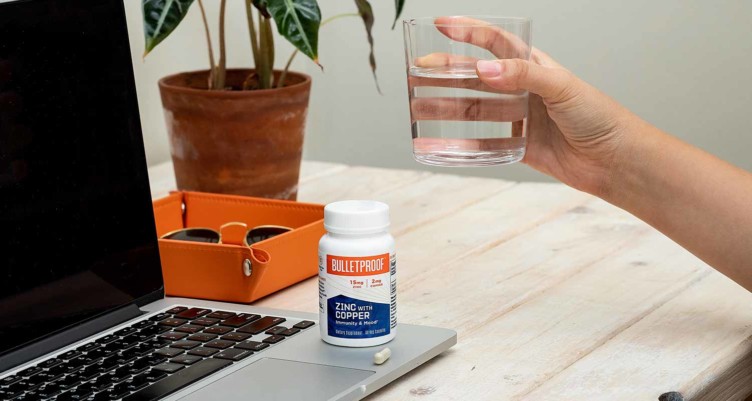
Is mineral water good for you? Yes! Mineral water is a refreshing way to get more trace elements in your diet and support overall wellness. Depending on their source, mineral waters will have different mineral levels, so definitely check the labels when you go water shopping to see what you’re really getting out of your bubbly.
If you’re looking for a reliable way to get more minerals in your diet (without chugging Perrier all the time), these supplements can help:
- Bulletproof Zinc With Copper gives you balanced doses of both essential minerals (15 mg of zinc and 2 mg of copper) to support everything from immunity to mood.†
- Bulletproof Zen Mode has 125 mg of magnesium citrate, plus complementary ingredients to support relaxation and stress relief.†
Learn more about the top supplements that everyone should take (including minerals!).
Sign up for early access to sales, product launches, the latest Bulletproof news and more!
This article has been updated with new content.



